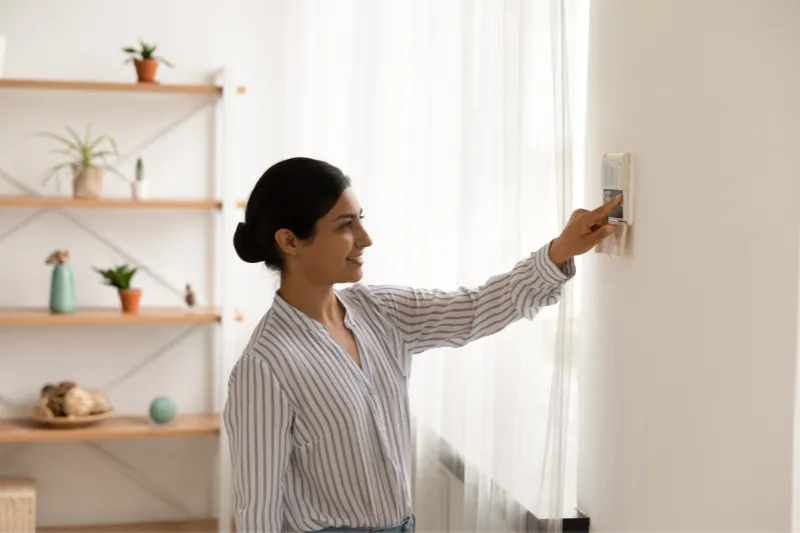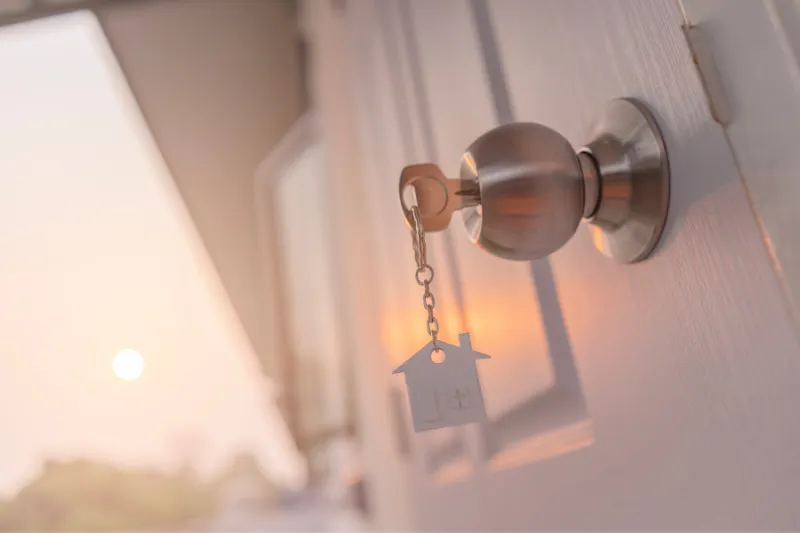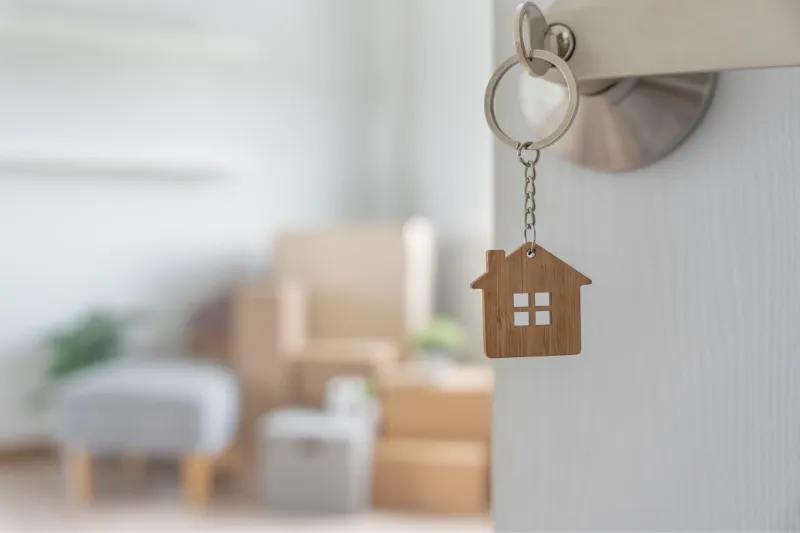Investing in rental homes can generate income, ensuring financial stability. It's crucial to understand various…
Eco-Friendly Home Upgrades for Denver Investment Properties
Investing in green upgrades for Denver properties benefits both the environment and finances of landlords and tenants. These upgrades attract eco-conscious tenants, reduce environmental impact, and offer financial perks by cutting bills and raising property value. The blog discusses eco-friendly upgrades like renewable energy, energy-efficient appliances, water conservation, and sustainable materials that improve sustainability. Advantages include economic benefits and tips for eco-friendly living spaces in Denver.
The Demand for Eco-Friendly Living in Denver
Denver residents are increasingly recognizing the importance of eco-friendly living in the face of climate change and rising energy costs. The demand for eco-friendly homes in Denver is driven by the desire to reduce energy bills, lower carbon footprint, and contribute to a more sustainable future. As a result, property owners who invest in eco-friendly upgrades can attract tenants who prioritize energy efficiency, sustainability, and environmental responsibility. By understanding the demand for eco-friendly living in Denver, property owners can make informed decisions about the upgrades that will best meet the needs of their tenants and enhance their rental property’s market appeal.
Why Denver Tenants Prefer Eco-Friendly Homes
Denver tenants prefer eco-friendly homes for several reasons. Firstly, eco-friendly homes are more energy-efficient, resulting in lower energy bills for tenants. This is especially important in Denver’s climate, where heating and cooling costs can be significant. Secondly, eco-friendly homes offer improved comfort and indoor air quality. Well-insulated homes and energy-efficient appliances provide a more comfortable living environment. Additionally, eco-friendly homes often incorporate water-saving features, such as low-flow fixtures and tankless water heaters, which can help tenants reduce their water usage and lower their utility bills. Overall, tenants in Denver understand the long-term benefits of living in eco-friendly homes, including energy savings, improved comfort, and reduced environmental impact.
The Impact of Eco-Friendly Upgrades on Rental Investments
Investing in eco-friendly upgrades for rental properties in Denver can have a positive impact on rental investments. By making energy-efficient improvements, such as installing solar panels or upgrading to energy-efficient appliances, property owners can significantly reduce energy bills, which can attract tenants and increase the property’s market value. Additionally, eco-friendly upgrades can make the property more attractive to environmentally-conscious tenants, who are willing to pay a premium for sustainable and energy-efficient living spaces. Moreover, eco-friendly upgrades can enhance the overall appeal and desirability of the rental property, leading to lower vacancy rates and higher rental income. Property owners who prioritize eco-friendly upgrades not only contribute to a more sustainable future but also benefit financially from reduced operating costs and increased rental demand.
3 Eco-Friendly Upgrades for Denver Properties
There are several key eco-friendly upgrades that property owners can consider for their Denver properties. Installing solar panels is a popular option, as it harnesses Colorado’s abundant sunshine to generate green energy and reduce energy bills. Upgrading to energy-efficient appliances with the Energy Star label can also significantly reduce energy consumption. Additionally, improving insulation in the property can enhance energy efficiency and reduce heating and cooling costs. These upgrades not only benefit the environment but also provide financial incentives and long-term savings for property owners.
Solar Panel Installation: Harnessing Colorado’s Sunshine
Solar panel installation is a powerful eco-friendly upgrade for Denver properties. Colorado’s abundant sunshine makes it an ideal location for harnessing solar energy. By installing solar panels, property owners can generate clean and renewable energy, significantly reduce their reliance on traditional energy sources, and lower their energy bills. Solar panels convert sunlight into electricity, which can be used to power the property’s appliances, heating, and cooling systems. Any excess energy generated can be fed back into the grid, earning credits or revenue for the property owner. Solar panel installation not only provides immediate energy savings but also contributes to a more sustainable future by reducing carbon emissions and dependence on fossil fuels.
Energy-Efficient Windows and Insulation: A Must-Have in Denver’s Climate
In Denver’s climate, energy-efficient windows and insulation are essential eco-friendly upgrades for rental properties. Old windows can be a significant source of heat loss in the winter and heat gain in the summer, leading to higher energy bills and reduced comfort for tenants. Upgrading to energy-efficient windows, such as double-pane or triple-pane windows, can significantly improve insulation and reduce energy consumption. Additionally, improving insulation in the property’s walls, attic, and basement can further enhance energy efficiency and create a more comfortable living environment. These upgrades not only save money on energy bills but also contribute to reducing carbon emissions and mitigating the impacts of climate change.
Smart Home Thermostats: Balancing Comfort and Sustainability
Smart home thermostats are a valuable eco-friendly upgrade for rental properties in Denver. These thermostats offer advanced features that optimize energy usage while maintaining comfort for tenants. Smart thermostats can learn tenants’ heating and cooling preferences, automatically adjust temperature settings based on occupancy, and provide remote control access through smartphone apps. By optimizing the heating and cooling systems, smart thermostats can reduce energy consumption and lower energy bills. Additionally, smart thermostats can integrate with other eco-friendly upgrades, such as heat pumps, to further enhance energy efficiency and sustainability. With the ability to track and analyze energy usage, smart thermostats provide valuable insights for property owners and tenants to make informed decisions about energy conservation.
Water Conservation Techniques for Rental Properties
Implementing water conservation techniques in rental properties is crucial for reducing water usage and promoting sustainability. Upgrading to water-efficient fixtures, such as low-flow toilets and showerheads, can significantly reduce water consumption without compromising performance. Installing tankless water heaters provides hot water on demand, eliminating the need for storing large amounts of heated water and reducing energy waste. These upgrades not only conserve water but also lower water bills for tenants. Property owners can also consider xeriscaping, a landscaping technique that utilizes native plants and efficient irrigation systems to reduce water usage in outdoor spaces. Water conservation techniques play a vital role in creating sustainable and environmentally-conscious rental properties.
Low-Flow Toilets and Showerheads: Saving Water with Every Flush and Shower
Low-flow toilets and showerheads are essential water-saving upgrades for rental properties. Traditional toilets and showerheads can be significant contributors to water waste, consuming large volumes of water with each flush or shower. Upgrading to low-flow toilets and showerheads significantly reduces water consumption without sacrificing performance. Low-flow toilets use less water per flush, while low-flow showerheads restrict water flow without compromising water pressure. These upgrades not only conserve water but also contribute to lower water bills for tenants. By incorporating low-flow fixtures in rental properties, property owners can promote water conservation and create eco-friendly living spaces that align with tenants’ sustainability goals.
Xeriscaping: Reducing Water Usage with Native Landscaping
Xeriscaping is a sustainable landscaping technique that reduces water usage in outdoor spaces. By utilizing native plants, efficient irrigation systems, and soil improvements, xeriscaping minimizes the need for supplemental watering and reduces water waste. Xeriscaping not only promotes water conservation but also creates visually appealing and low-maintenance landscapes. Property owners can incorporate xeriscaping in rental properties to reduce outdoor water usage and create eco-friendly outdoor spaces. Tenants will appreciate the beauty and sustainability of xeriscaping, while property owners can benefit from lower water bills and reduced maintenance costs. Xeriscaping is a win-win for both the environment and the overall aesthetics and functionality of rental properties.
Enhancing Indoor Air Quality and Tenant Health
Ensuring good indoor air quality is crucial for the health and well-being of tenants. By implementing eco-friendly upgrades that minimize the presence of volatile organic compounds (VOCs) and reduce air pollution, property owners can create healthier living spaces. Using non-toxic paints and finishes in interior spaces reduces the release of harmful chemicals into the air, improving indoor air quality. Additionally, incorporating indoor plants can act as natural air purifiers, filtering out pollutants and improving air quality. By prioritizing indoor air quality, property owners can provide tenants with a healthier and more sustainable living environment.
Non-Toxic Paints and Finishes: The Choice for Healthier Living Spaces
Replacing traditional paints and finishes with non-toxic alternatives is a simple yet effective eco-friendly upgrade for rental properties. Traditional paints and finishes often contain volatile organic compounds (VOCs), which can release harmful chemicals into the air, contributing to poor indoor air quality. Non-toxic paints and finishes are made from natural and low-VOC materials, reducing the presence of harmful chemicals and improving indoor air quality. By choosing non-toxic materials, property owners can create healthier living spaces for tenants, minimizing the risk of respiratory issues and allergies. Non-toxic paints and finishes also provide a more sustainable option, as they are generally made from renewable and eco-friendly sources. Prioritizing non-toxic paints and finishes in rental properties is a simple yet impactful step towards creating healthier and more sustainable living spaces.
Indoor Plants: Natural Air Purifiers
Incorporating indoor plants is an excellent eco-friendly upgrade for rental properties that not only enhances the aesthetics but also improves air quality. Indoor plants act as natural air purifiers, filtering out pollutants and producing oxygen. They can help remove harmful chemicals and toxins from the air, creating a healthier living environment for tenants. Additionally, indoor plants can increase humidity levels, reducing the risk of respiratory issues caused by dry indoor air. Property owners can choose low-maintenance indoor plants that are suitable for the rental property’s lighting and climate conditions. By incorporating indoor plants, property owners can promote better air quality and create a more sustainable and inviting living space for tenants.
Investing in Energy-Efficient Appliances
Investing in energy-efficient appliances is a smart eco-friendly upgrade for rental properties. Energy-efficient appliances, labeled with the Energy Star label, are designed to consume less energy while maintaining optimal performance. By upgrading to energy-efficient appliances, property owners can significantly reduce energy consumption and lower utility bills for tenants. Energy-efficient appliances include refrigerators, dishwashers, washing machines, and dryers. These appliances are designed to use less water and electricity, making them more environmentally-friendly and cost-effective. Property owners can attract environmentally-conscious tenants by prioritizing energy-efficient appliances, which not only save money but also contribute to reducing carbon emissions and promoting sustainability.
The Benefits of ENERGY STAR Rated Appliances
ENERGY STAR-rated appliances offer several benefits for rental properties. These appliances are independently certified to meet strict energy efficiency standards set by the U.S. Department of Energy. By choosing ENERGY STAR-rated appliances, property owners can provide tenants with appliances that consume less energy, resulting in lower utility bills. In addition to energy savings, ENERGY STAR-rated appliances also contribute to reducing carbon emissions and mitigating the impact of climate change. These appliances are designed to use advanced technologies that optimize energy efficiency without compromising performance. Property owners who invest in ENERGY STAR-rated appliances not only enhance the sustainability of their rental properties but also attract tenants who prioritize energy efficiency and environmental responsibility.
How to Choose the Best Appliances for Your Rental Property
Choosing the best appliances for your rental property involves considering several factors, including energy efficiency, performance, and durability. When selecting appliances, prioritize those with high energy efficiency ratings, such as ENERGY STAR-rated appliances. These appliances are independently certified to consume less energy while maintaining optimal performance. Additionally, consider the specific needs and preferences of your tenants. For example, if you have tenants who prioritize water conservation, choose appliances with water-saving features, such as low-flow dishwashers or washing machines. It is also essential to consider the durability and reliability of the appliances to minimize maintenance and replacement costs. By carefully selecting appliances that prioritize energy efficiency, water conservation, and durability, property owners can provide tenants with high-quality and eco-friendly appliances that enhance the sustainability of their rental properties.
Incorporating Recycled and Sustainable Materials
Incorporating recycled and sustainable materials into rental properties is an eco-friendly upgrade that promotes sustainability and reduces environmental impact. Sustainable materials, such as bamboo flooring and recycled glass countertops, offer both aesthetic appeal and environmental benefits. Bamboo is a rapidly renewable resource that provides a durable and eco-friendly flooring option. Recycled glass countertops are made from post-consumer or post-industrial glass, reducing waste and creating a unique and sustainable surface. By choosing recycled and sustainable materials, property owners can create stylish and environmentally-conscious rental properties that align with tenants’ sustainability goals. These upgrades not only contribute to a greener future but also enhance the overall value and market appeal of the rental properties.
Bamboo Flooring: A Durable and Eco-Friendly Option
Bamboo flooring is a popular eco-friendly option for rental properties. Bamboo is a rapidly renewable resource that can be harvested within 3-5 years, making it a more sustainable alternative to traditional hardwood flooring. Bamboo flooring is known for its durability, strength, and aesthetic appeal. It is available in various colors and finishes, allowing property owners to create a unique and stylish look in their rental properties. Additionally, bamboo flooring is easy to maintain and can withstand high foot traffic, making it ideal for rental properties. By choosing bamboo flooring, property owners can contribute to a more sustainable future while creating durable and visually appealing living spaces for tenants.
Recycled Glass Countertops: Stylish and Sustainable
Recycled glass countertops are a stylish and sustainable choice for rental properties. These countertops are made from post-consumer or post-industrial glass, reducing waste and promoting recycling efforts. Recycled glass countertops come in a wide range of colors and patterns, allowing property owners to create unique and visually appealing kitchen or bathroom spaces. In addition to their aesthetic appeal, these countertops are durable and resistant to stains and scratches. By choosing recycled glass countertops, property owners can enhance the sustainability of their rental properties and provide tenants with a stylish and eco-friendly living environment. These countertops are a beautiful and sustainable alternative to traditional countertop materials, aligning with tenants’ preferences for environmentally-conscious living spaces.
Community and Shared Amenities
Incorporating community and shared amenities in rental properties can promote a sustainable and eco-friendly lifestyle for tenants. Community gardens provide tenants with the opportunity to grow their own food, reducing food waste, and promoting sustainable agriculture practices. Installing bike racks encourages tenants to use eco-friendly transportation methods and reduce their reliance on cars. Electric vehicle charging stations support the adoption of electric vehicles and contribute to reducing greenhouse gas emissions from transportation.
Creating Community Gardens: Encouraging a Green Thumb
Creating community gardens in rental properties encourages tenants to engage in sustainable practices and develop a green thumb. Community gardens provide tenants with the opportunity to grow their own organic fruits, vegetables, and herbs, reducing food waste and promoting sustainable agriculture practices. These gardens foster a sense of community and collaboration among tenants, creating a shared space where they can connect and exchange gardening tips and knowledge. Community gardens also add beauty to the rental property and contribute to a more sustainable and environmentally-conscious living environment. Property owners can enhance the overall appeal of their rental properties and provide tenants with valuable resources for sustainable and healthy living.
Bike Racks and Electric Vehicle Charging Stations: Supporting Eco-Friendly Transportation
Installing bike racks and electric vehicle charging stations in rental properties supports eco-friendly transportation options for tenants. Bike racks encourage tenants to use bicycles as a mode of transportation, reducing carbon emissions and promoting a healthier and more sustainable lifestyle. Electric vehicle charging stations support the adoption of electric vehicles, offering tenants the convenience of charging their vehicles at home and reducing their reliance on fossil fuels. By providing these amenities, property owners can contribute to reducing greenhouse gas emissions from transportation and promote a greener and more environmentally-conscious community. Bike racks and electric vehicle charging stations also enhance the overall appeal and market value of rental properties, attracting tenants who prioritize eco-friendly transportation options.
Financial Incentives and Benefits
Investing in eco-friendly upgrades for Denver investment properties offers financial incentives and long-term savings for property owners. Tax credits and rebates are available for various eco-friendly upgrades, such as solar panel installation and energy-efficient appliances. These financial incentives can offset the upfront costs of the upgrades and provide substantial savings over time. Additionally, eco-friendly upgrades can result in lower energy bills, reducing operating expenses for the rental property.
Understanding Tax Credits and Rebates for Eco-Friendly Upgrades
Navigating tax credits and rebates for eco-friendly upgrades can be financially rewarding. In Denver, investment property owners can benefit from incentives that promote sustainable practices. Utilizing sustainable materials and efficient appliances can lead to lower installation costs, while also reducing energy bills for tenants. Tax credits and rebates often cover a portion of the expenses associated with eco-friendly renovations, making it a wise investment choice. By incorporating energy-efficient solutions like tankless water heaters or smart thermostats, property owners can reduce the property’s overall carbon footprint and greenhouse gas emissions. Taking advantage of these financial incentives not only promotes a greener environment but also adds value to your rental property.
The Long-Term Savings of Going Green
Investing in eco-friendly upgrades not only benefits the environment but also provides long-term savings for homeowners. By reducing energy consumption through sustainable practices like installing solar panels, efficient appliances, and proper insulation, residents can significantly cut down on their energy bills. Additionally, utilizing green energy sources and water-saving fixtures further minimizes operating costs over time. The use of sustainable materials and energy-efficient designs helps lower maintenance expenses and enhances the property’s value. Implementing these eco-conscious choices can lead to substantial savings on utility bills while contributing positively to the planet’s well-being. Embracing green practices is not only a smart choice for the environment but also a financially prudent decision for long-term savings.
Frequently Asked Questions
What Are the Most Cost-Effective Eco-Friendly Upgrades?
The most cost-effective eco-friendly upgrades for Denver investment properties include energy-efficient lighting, smart thermostats, and insulation improvements. These upgrades provide significant energy savings and can be implemented at a relatively low cost, offering a high return on investment.
How can eco-friendly upgrades attract environmentally-conscious tenants or buyers?
Eco-friendly upgrades attract environmentally-conscious tenants or buyers by demonstrating a commitment to sustainability and offering the benefits of reduced energy consumption, lower utility bills, and a reduced carbon footprint. These upgrades align with the values and preferences of environmentally-conscious individuals.
How Do Eco-Friendly Features Affect Rental Property Value?
Eco-friendly features, such as solar, energy-efficient appliances, and sustainable materials, can positively affect rental property value. These features not only enhance the sustainability and market appeal of the property but also offer financial incentives and long-term savings for property owners.
Can I Implement These Upgrades in Older Properties?
Yes, eco-friendly upgrades can be implemented in older properties through retrofitting and renovation. Upgrades such as insulation improvements, energy-efficient appliances, and sustainable materials can significantly enhance the eco-friendliness and energy efficiency of older properties.
Conclusion
Improving your Denver rental properties to be eco-friendly helps the environment and attracts tenants wanting sustainable living. Upgrades like solar panels, water-saving methods, and energy-efficient devices save money long-term and draw green-conscious renters. Using recycled materials, making community spaces, and getting tax benefits create a sustainable, appealing home. Choosing eco-friendly changes is a wise investment that raises property value and supports a greener world.





